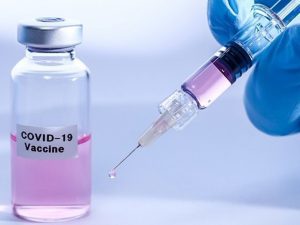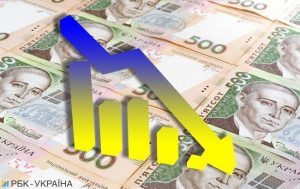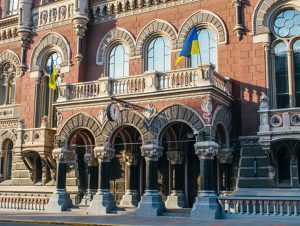
Initial registrations of electric vehicles (new and used) in January-November 2020 decreased by 2% compared to the same period in 2019, to 6,823 units, including 92% of used cars, the Ukrautoprom association reports.
Thus, in the 11 months, the market of electric vehicles turned to negative dynamics, while over the ten months there was still a slight increase (by 1%), despite the drop in sales in October by 15%, and in the seven months, the growth was 7%.
This situation is due to the fact that, according to the association, in November compared to the same month of 2019 the number of registrations of electric cars decreased by almost 28% from November 2019, to 514 units (481 passenger cars and 33 commercial vehicles), which is also almost 22% less than in October 2020.
However, at the same time, the report states, the share of new cars increased to 10% from 6% in November last year, used electric cars from abroad were purchased by 461 persons (31% less than a year earlier), while the demand for new cars rose by 29%, to 53 units.
The most popular passenger electric car remains Nissan Leaf (126 cars were bought in November). The top five cars also include Chevrolet Bolt with 69 units, Tesla Model 3 with 55 units, Tesla Model S with 36 cars, and BMW i3 with 23 vehicles.
Commercial electric vehicle statistics for November were formed by Renault Kangoo Z.E. with 26 vehicles and NISSAN e-NV200 with seven units.

Head of the parliamentary committee on the health of the nation, medical care and health insurance Mykhailo Radutsky has named those who will be the first to be vaccinated against coronavirus in Ukraine for free.
“The first wave is doctors, the military, police. Doctors are mandatory. First of all, these are medical workers, these are the military, this is the police, this is the National Guard and the elderly from the risk group,” Radutsky said on the air of the Right to Power (Pravo na Vladu) program on 1 + 1 TV channel.
According to him, 4 million Ukrainians can already be vaccinated for free on COVAX.
In turn, Deputy Minister of Internal Affairs Anton Gerashchenko said that as many as 25,000 people fell ill with coronavirus among law enforcement officers, of whom 78 people died.

The fall of the Ukrainian economy in 2020 may amount to 5.5% of GDP with a further recovery of growth by 3.5-4% in the next two years, analysts at Deutsche Bank expect.
According to the materials of Emerging Markets Outlook 2021, experts admit that the next tranche of the International Monetary Fund (IMF) will be allocated to Ukraine in early 2021, which will pave the way for obtaining funding from other international partners.
At the same time, the central bank will leave the discount rate at 6% per annum, according to the review.

The National Bank of Ukraine (NBU) is oriented on the growth of the country’s international reserves in 2020 from $25.3 billion at the beginning of the year to more than $27 billion at the end of the year, Deputy Governor of the National Bank Yurii Heletii has said.
“The indicator of international reserves will be higher than at the beginning of the year. Let me remind you that at the beginning of the year it was $25.3 billion. Our target is more than $27 billion,” he said.
According to the banker, the final volume of international reserves will depend on placements by the Ministry of Finance.
He explained that in the October forecast of the NBU, which assumed that international reserves at the end of this year will amount to $29 billion, it was planned to receive financing from the IMF, the World Bank and the EU.
According to the official, the state of international reserves is satisfactory and, according to the composite criterion, which is calculated according to the EU methodology, exceeds 90%.
As reported, the European Commission, on behalf of the European Union, issued EUR 600 million to Ukraine as part of the macro-financial assistance program related to COVID-19.

The consumption of antibiotics for some groups in Ukraine has grown 5-6 times, Minister of Health Maksym Stepanov said during a press briefing in Kyiv on Wednesday.
At the same time, the minister noted that the situation is under control.
“The consumption of antibiotics in Ukraine has grown by 5-6 times for some groups. I held meetings with pharmaceutical companies, we have a controlled situation, medical institutions are provided with a two-three-month supply of antibiotics,” he said.

The turnover of the Brocard.ua online store, which was launched on January 8, 2020, exceeded UAH 100 million in October, said co-founder of Brocard-Ukraine LLC, the largest operator of the perfumery and cosmetic market in Ukraine, Yuriy Gatkin.
“On January 8, we launched the Brocard.ua online store and already in October reached a turnover of UAH 100 million,” he said during the RAU Summit 2020 on Wednesday.
There were 4.5 million visits to the website in November, the press service of the company told Interfax-Ukraine.
Gatkin added that the pace of development of the e-commerce direction has gained rapid momentum, it employs a staff of 168 people, and “the warehouse works around the clock.”
According to the co-founder of the company, the online store Brocard.ua is currently ranked second in terms of indicators after the online cosmetics store Makeup.